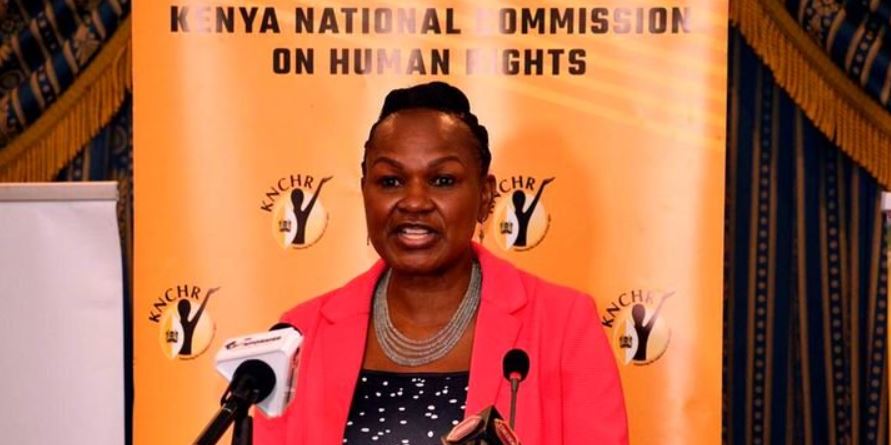The National Human Rights Commission of Kenya (KNCHR) has urged the government to extend the 24-hour deadline for safe departure given to residents in the North Rift's problematic regions.

Before the expiration of a 24-hour deadline originally imposed on Sunday but extended on Monday, KNCHR appealed on Tuesday.
A multi-agency security team, which included the military, issued the request as they prepared to launch a second phase of their fight against bandits in the North.
It was to expire at 1930 hours on March 14.
Did you read this?
Roseline Adede, chairwoman of the KNCHR, stated that the government must act immediately and extraordinarily to prevent what she called an oncoming humanitarian crisis due to the new decree.
"The Commissionobserves that the majority of the locations designated as "crime scenes" are people's homes. regular residences, and the overall negative effects of the vacate order will have significant negative effects on a variety of their fundamental rights and human freedoms as guaranteed by our Constitution," Adede said.
She pointed out that civilians who have been the targets of banditry activities find it difficult to leave the unresting areas since they have nowhere else to go.
According to Adede, this would cause a proliferation of crowded temporary camps and centres without facilities for necessities like food, water, and medical treatment.
Strategy Based On Rights
To restore peace and order in the greater North Rift region, the KNCHR Chairwoman noted that the Commission fully supports security operations. However, she asked the government to use a rights-based approach.

She said the second phase of the combined security operation needed to follow human rights and humanitarian legislation, values, and norms on a national and international scale to make it easier to provide aid to needy civilians.
The KNCHR Chairman further urged security agencies to ensure everyone's safety and security in the affected areas and safe and orderly transit.
According to Adede, the National and County Governments should provide safe houses and spaces where the communities can temporarily relocate with access to necessities like water, food, and adequate and reasonable sanitation because the affected districts are predominantly pastoral and because of the impending displacement.
The KNCHR Chairperson stated that both levels of government should take action to ensure the seamless availability of alternative education facilities in the impacted areas to prevent disruptions to the region's educational system.
KNCHR urged Interior Cabinet Secretary Kithure Kindiki to give humanitarian organizations, including the Kenya Red Cross, permission to transport at-risk civilians in the bandit-infested area to safer areas and to offer any other necessary humanitarian aid.
Humanitarian assistance
Adede further recommended that security personnel use the local administration mechanisms already in place to share information with the public about troubled locations, make plans for relocating populations from troubled areas, and provide emergency support services.
She continued by saying that the Commission was available as a conduit between the general people and the security services to guarantee the operation's success.
According to its constitutional duty, the Commission monitors the security operation. To help security forces end the region's ongoing instability, she urged inhabitants of the affected areas to support and cooperate with them.
A day after ordering evacuation in 27 regions, the authorities modified the areas that citizens were to leave on Monday.
According to Kindiki, the locations that must be left vacant for security operations omit Kabelbo, Nakwamoru, Lobokat, Lokoron, Turkwel Escarpment, or Ombollion.
He expanded the list of vacant places to include Ng'elecha, Losokoni caverns, Laramoru Gorges, Karau, Noosidan Escarpment, and Rugus caves.
The evacuation will make way for a stepped-up security operation led by Deputy Inspector General of Police Noor Gabow to flush out the thieves from their lairs.









